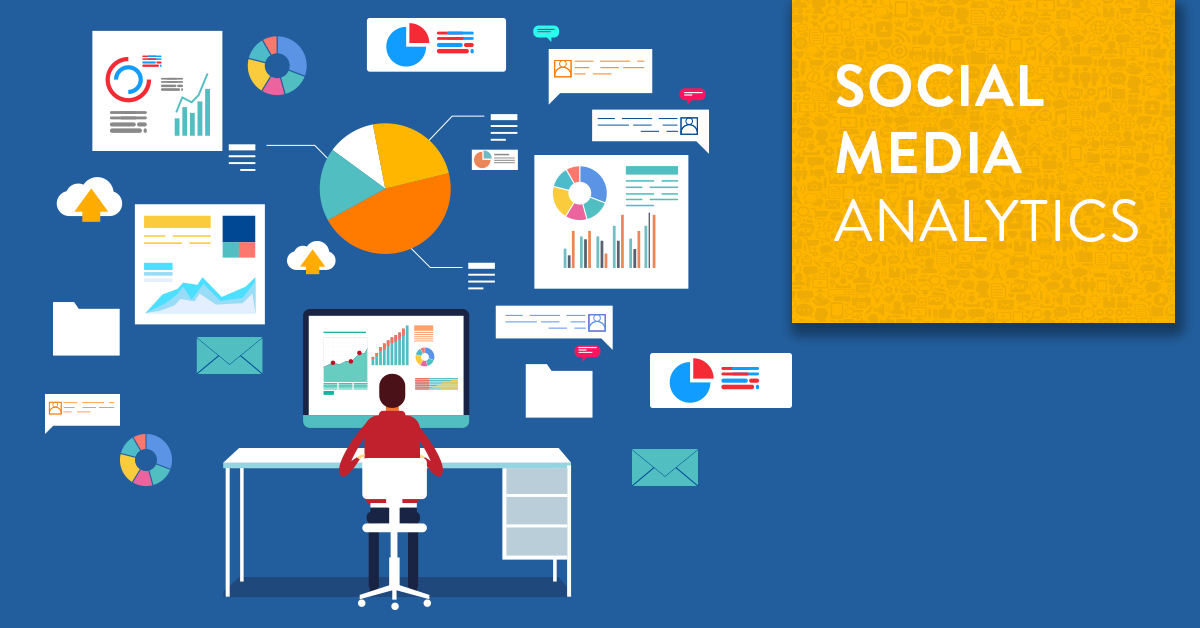The Strategic Role of Social Media Analytics in Enterprises
In today’s digitally connected world, enterprises must leverage data-driven insights to maintain a competitive edge. Social media analytics plays a crucial role in enabling large-scale organizations to understand customer behavior, track market trends, and optimize marketing strategies. By effectively harnessing social media analytics, enterprises can enhance decision-making, improve customer engagement, and drive sustainable business growth.
Understanding Social Media Analytics
Social media analytics involves the systematic collection and analysis of data from social media platforms to evaluate performance, audience behavior, and campaign effectiveness. Unlike basic metrics such as likes, shares, and comments, enterprise-level analytics delve deeper into customer sentiment, engagement patterns, and market intelligence. By leveraging sophisticated analytical tools, enterprises can extract actionable insights that inform strategic decisions.
Why Social Media Analytics is Essential for Enterprises
Enterprises operate on a much larger scale than small businesses, necessitating advanced social media analytics to manage brand reputation, optimize campaigns, and drive ROI. Key benefits include:
- Market Intelligence: Identifying industry trends, consumer preferences, and competitive dynamics to refine business strategies.
- Brand Sentiment Analysis: Understanding public perception and brand sentiment through AI-powered sentiment analysis.
- Campaign Performance Tracking: Measuring the effectiveness of digital marketing initiatives and optimizing ROI.
- Competitive Benchmarking: Comparing performance metrics against industry competitors to enhance strategic positioning.
- Data-Driven Decision-Making: Using analytics to inform product development, customer engagement, and sales strategies.
- Crisis Management: Monitoring brand mentions and social conversations to mitigate potential PR crises in real-time.
Enterprise-Grade Social Media Analytics Tools
To fully capitalize on social media data, enterprises need robust analytics tools designed for large-scale operations. Below are some leading solutions:
1. Social Status
A comprehensive analytics and reporting tool designed for agencies and enterprises, Social Status offers in-depth performance tracking across multiple platforms.
- Profile Analytics: Detailed performance analysis of owned accounts.
- Ads Analytics: Tracking paid media campaigns and conversion insights.
- Competitor Benchmarking: Understanding competitor engagement and strategy.
- Influencer Performance Tracking: Measuring influencer collaboration effectiveness.
- Automated Reporting: White-labeled, customizable reports for stakeholders.
2. Sprout Social
A powerful platform that provides enterprise-grade social media analytics, engagement, and automation.
- Social Listening: AI-powered sentiment analysis and trend monitoring.
- Campaign Analytics: Measuring real-time performance of marketing efforts.
- Collaboration Tools: Multi-user dashboards for team-wide insights.
- Advanced Reporting: Custom metrics and data visualization tools.
3. Hootsuite
One of the most widely used social media management tools, Hootsuite integrates analytics with scheduling and collaboration.
- Customizable Dashboards: Tailored analytics dashboards for enterprise reporting.
- Social Performance Metrics: Engagement, traffic, and audience behavior tracking.
- Competitor Insights: Benchmarking against industry peers.
4. Brandwatch
A leader in AI-driven social listening and analytics for enterprise businesses.
- Consumer Insights: Deep analysis of customer sentiment and behavior.
- Real-Time Alerts: Proactive alerts for crisis management.
- Integration with Business Intelligence (BI) Tools: Seamless data syncing with enterprise reporting systems.
5. Talkwalker
An enterprise-focused AI-driven social media analytics tool.
- Image Recognition: Analyzing brand logos in social images.
- Predictive Analytics: Identifying future trends based on historical data.
- Multi-Platform Insights: Aggregating data from all major social networks.
Implementing Social Media Analytics in Enterprise Strategy
To successfully integrate social media analytics, enterprises should follow a structured approach:
1. Define Business Objectives
Before collecting data, enterprises must determine key objectives, such as improving brand awareness, increasing engagement, or enhancing customer experience.
2. Deploy the Right Tools
Selecting analytics platforms tailored to enterprise needs ensures accurate data collection and interpretation. Scalability and integration with existing business intelligence (BI) tools are essential factors.
3. Gather and Analyze Data
Enterprises must collect data across various platforms, analyzing trends, engagement, and customer behavior to extract valuable insights.
4. Optimize Strategies Using Data-Driven Insights
Insights derived from analytics should be used to refine content strategy, ad targeting, and engagement efforts. Data-backed decisions enhance efficiency and effectiveness.
5. Monitor and Adapt Continuously
Social media landscapes evolve rapidly. Enterprises must continuously monitor performance, adjust campaigns, and respond to emerging trends in real time.
Conclusion: The Competitive Edge of Social Media Analytics
For enterprises, leveraging social media analytics is not merely an option—it is a strategic necessity. Advanced analytics empower organizations to navigate dynamic markets, understand customer needs, and optimize engagement strategies. By investing in the right tools and methodologies, enterprises can unlock the full potential of social media data, driving sustained growth and competitive advantage in an increasingly digital world.

